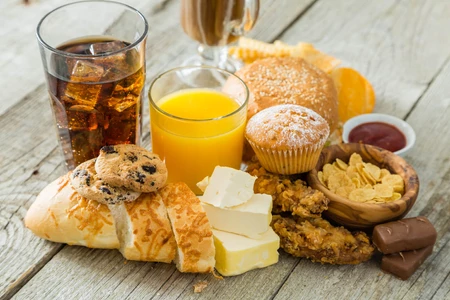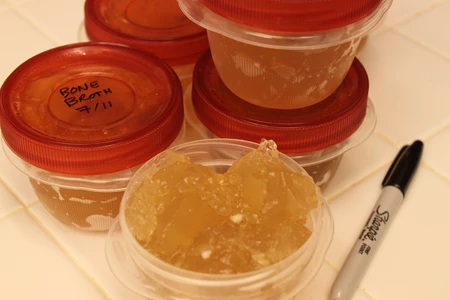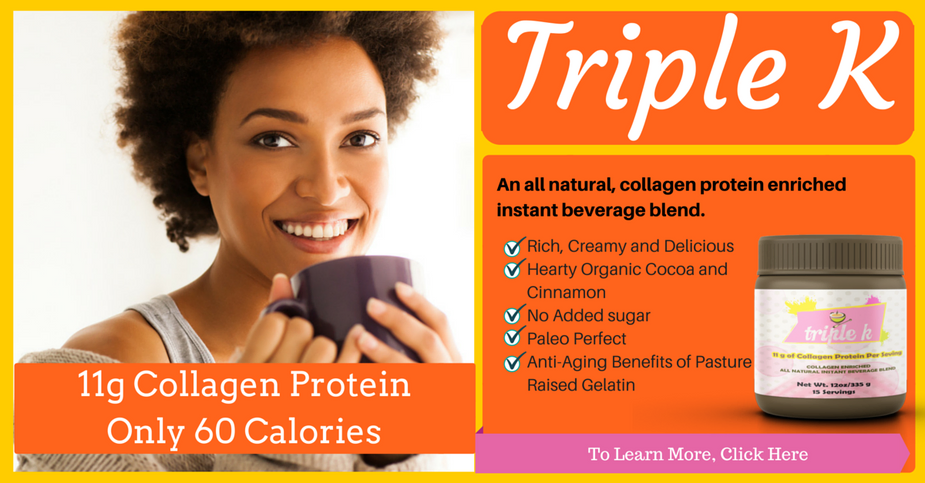How to Stop Dieting From Ruining Your Skin

Does Dieting Affect Your Skin?
Yes, yes, and YES! Going on a diet has a direct impact on your skin—for better and for worse. Great nutrition is your skin’s best friend, leading to a radiant, youthful glow. On the flip side, strict dieting with poor nutrition? That’s a one-way ticket to sagging skin and accelerated skin aging.
Have you ever noticed when someone goes on a diet they often end up looking older instead of younger? You know the look—hangry, with loose skin and hollow cheeks that seem to appear out of nowhere. It’s frustrating, isn’t it?
I think many of us women (and perhaps even you, as you read this) have been there. I know I have.
It feels unfair—we diet to look and feel amazing, not to add years to our appearance! But here’s the truth: dieting can age your skin unless you take the right steps to protect it.
In this article, we’ll dive into exactly why and how dieting can affect your skin. Then, we’ll break down three simple, golden rules for dieting to help you keep your skin smooth, youthful, and glowing—so you can achieve your goals without sacrificing your beauty.
Here are the main reasons dieting can wreak havoc on your skin:
- Poor or unhealthy diets = poor skin health (and hair and nails, too).
- Losing fat through dieting can lead to wrinkles, crepey-ness, and hollow, sunken cheeks.
- Unbalanced diets often lack essential nutrients, leaving your skin (and the layers underneath) vulnerable to accelerated aging.
Let’s unpack these challenges and get ahead of the game so your skin stays as healthy as your body. Sound good? Let’s go!
1. Bad Diet = Bad Skin

Let’s look at the facts. Our skin is our largest – and only visible – organ. It replaces itself over time – in fact skin cells only live 3 or 4 weeks and the skin you can see today will not be there this time next month. New skin cells are made all the time and as the top layers flake off, the new skin eventually becomes visible. One of the implications of this is that any change in our diet or other environmental factors that influence the quality of our skin will eventually, inevitably become the skin the world sees[1].
So, the saying ‘you are what you eat’ is really true. If you want wrinkles, sagging skin, keep eating a high sugar, processed food, fast food, pesticide sprayed, preservative laden, alcohol driven diet.
The above mentioned food and drink eats away at what little collagen we have left and impacts your skin on a cellular level leaving a wave of destruction in its path - sunken cheeks, lines, neck and forehead wrinkles, uneven skin tone and yes, crepey skin. This is what I call the visible signs of aging, or the "damage already done".
The good news is, there are healthy nutritious foods you can eat to support youthful glowing skin and at home corrective beauty treatments you can use to fix the damage already done - the visible signs of aging.
If you don't want loose skin due to weight loss, or wrinkles and crepey skin as a ‘reward’ for your non healthy diet, active measures are required to make sure that what we eat (or don’t eat) does not end up ruining your beautiful skin.
Fundamentally, our skin needs a number of essential vitamins, minerals and good fats to look its best.
Vitamin E is an anti oxidant, anti inflammatory and immune support element that is the key to skin health. And it is stored in the body’s fat cells. Likewise, Vitamins A, C, Zinc, Magnesium and Selenium have been shown to be keys to skin health. Some studies[2] have shown positive affects on skin beauty from supplementing our diets with these minerals, and with omega 3 fatty acids.
2. A Less Fat Diet = Less Skin Smoothness

3. Collagen = Core Foundation of Our Health and Appearance
 One big clue is that our skin, our bones and our muscles and sinews are made up of, mostly, proteins. The dominant protein is collagen, which is about 30% of the protein in our body[3].
One big clue is that our skin, our bones and our muscles and sinews are made up of, mostly, proteins. The dominant protein is collagen, which is about 30% of the protein in our body[3].
Collagen is what connects the body and forms the foundation on which the skin sits. Sounds like collagen is pretty important if we want our diet to make us look younger!
Collagen has many effects because it is so pervasive in the body: veins and arteries are strengthened by collagen so circulation can be enhanced with adequate collagen; bones and joints need collagen for flexibility and to repair damage; some feel that cellulite is reduced because collagen repairs the depleted fibers that cause the appearance of cellulite; and regular collagen intake is reported to actually reduce wrinkles in skin by keeping skin supple and firm, among other benefits.
Countering Collagen Depletion
Unfortunately, collagen depletion is an inevitable consequence of aging. And unhealthy dieting. One simple thing you can do is minimize UV damage from sun exposure
Another proactive step to consider is collagen supplementation.
Collagen supplementation needs to be done thoughtfully – not every collagen supplement actually works! That is because the body does not naturally translate ingested collagen into the body. The dietary supplement needs to be highly ‘bioavailable’ ; that is readily converted into collagen in the body.
 A highly promising source of ingestible collagen is bovine collagen.
A highly promising source of ingestible collagen is bovine collagen.
Bovine collagen is an excellent source of ingestible collagen due to its rich profile of Type I and Type III collagen—the primary types found in skin, hair, nails, bones, and connective tissues.
These types are essential for supporting skin elasticity, hydration, and overall structure, as well as promoting joint health and gut integrity..
Animal Protein vs Plant Protein
Animal protein is what our body needs to have the chance to improve our own collagen. The key word here is ‘animal’ protein vs 'plant" protein. Many people look to get extra protein in their diets but do not differentiate between different types of protein. But there actually huge differences between protein sourced from animals, cattle or bovine protein; whey protein (from milk); or various vegetable proteins like soy, pea, hemp, rice and so forth.
Only animal protein can help our human collagen profile. It makes sense – we humans are animals too! Non-animal proteins can be very helpful for other reasons – they are filling and can assist in dieting, can help reduce bad cholesterol, and perhaps heart disease.
Here's the scoop: every protein are made up of amino acids – and only the amino acids dominant in animal proteins can stimulate the production of collagen in the human body.
Make sure your animal protein is NonGMO, hormone free, pasture raised grass fed bovine collagen, and traceable back to its origin. Choose a high-quality source to ensure the best and healthiest result.
The 3 Golden Rules for Dieting and Keeping Your Skin Looking Younger
- Make every calorie count! And that means EAT! Please don't starve yourself. You can eat a lot and still lose weight. I am living proof. Eat a balanced diet of fresh real, collagen boosting foods. This way you can whittle your waist without getting diet face as the nutrient dense foods you are eating help to trigger collagen synthesis in your body.
- Say yes to fat, the good fats. Extra Virgin Olive Oil (EVO) and avocado oil are numero uno, as both moisturize and nourish your skin, reduces the visible signs of aging, assists in improved skin elasticity and keeps the hunger pangs away. (And necessary for ensuring key strategic biochemical functions occur.) Pour olive oil over your salads, veggies and meats, add to coffee like Starbucks has, and massage onto your body and facial skin.
- Supplement with collagen powder. If you are on or ever have been on a crazy diet, that's gonna chew through whatever collagen stores you have left - which means, sunken cheeks, sagging skin, crepey skin. For your body, more of the same - loose, droopy thinning skin and crepey skin. GOOD NEWS THOUGH!! With diligent effort, you can contour the new you with a high impact collagen diet and focus on collagen replacement, using collagen powder. Remember , you can whittle your waist without getting diet face by consuming collagen powder! Bovine collagen provides the right amino acids, proline, hydroxyproline, glycine and lysine, all necessary to build collagen.
Collagen protein sourced from Rousselot, one of the best collagen providers is ideal. Collagen powder by itself is not really palatable and needs help to be a tasty supplement. Look for a low calorie source such as Triple K Collagen, with only 60 calories for 11 grams of protein and delicious dark cocoa taste.
Don’t Let Your Dieting Success Negatively Affect Your Skin!
If you want to lose weight and you want to continue to look great, please follow the three golden rules I have mentioned above: EAT, FAT, COLLAGEN SUPPLEMENTATION.
Follow the plan I have outlined above, including eating collagen boosting foods, to counter the potential but natural effects of weight loss and aging. And most essential, collagen supplementation in the form of a powder, which you can turn into a collagen drink, should be a core component of your plan.
Make your diet be a happy diet and one that positively affects your skin!
Until Next Time,
Kellie
Growing Younger Everyday
Reference:
[1] https://www.aad.org/public/kids/skin/how-skin-grows
[2] https://www.ncbi.nlm.nih.gov/pmc/articles/PMC2836433/
[3] http://www.medicalnewstoday.com/articles/262881.php
https://en.wikipedia.org/wiki/Collagen
3 Day Jumpstart to Get Glowing Skin, More Confidence, + Look and Feel Fabulous!
You can unsubscribe anytime. Please check our privacy policy.



